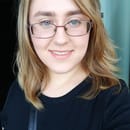I first heard of flarf poetry when I was asked to write one for a Creative Writing class. Having never heard of it before, the name intrigued me—“flarf” just sounded playful and effortless. While it certainly is playful, I’m not so sure about the effortless part! In honour of Celebrate the Arts Week, here’s a wonderful form of poetry that is whacky, weird, and a lot of fun to write.
According to Gary Sullivan, who wrote “A Brief Guide to Flarf Poetry,” flarf is “a quality of unintentional or intentional ‘flarfiness.’ A kind of corrosive cute, or cloying, awfulness. Wrong. Un-P.C. Out of control. ‘Not okay.’” And flarfy is defined as “to be wrong, awkward, stumbling, semi-coherent […], un-P.C. To take unexpected turns; to be jarring. Doing what one is ‘not supposed to do.’” So, like I said, it’s whacky, weird, and—in a sense—liberating. Using pre-written texts, Google searches, and community interactions are all valid ways to come up with flarf.
One of the first flarf poems, Mm-hmm, was also written by Gary Sullivan in the early 21st century. According to him, he decided to enter a poetry contest that he thought was a scam. His grandfather, who unfortunately passed away, had entered one of those scam contests earlier and told Sullivan “how proud he was that he had won some sort of poetry contest, and that he had ordered the book.” Sullivan had always felt bad about that, so when another one of those scam contests rolled around, he tried to come up with what he thought was the most offensive poem possible, and submitted it. Who would’ve known that the contest was actually legitimate, and that he would win?
And so, flarf poetry essentially originated from Sullivan who was attempting to do something he “wasn’t supposed to do.” As a result, this form of poetry rejects the standard conventions of typical poetry and redefines what a “good poem” looks and sounds like. The outcomes are often hilarious and/or disturbing, as well as freeing. Challenging poetic norms isn’t the only thing this form does after all—its contents, origins, and word choices also challenge our perceptions of what is proper and improper in daily life. What’s okay to write/say? What’s not okay to write/say? What can I talk about, and how can I talk about it without sounding like this or that? Put all those thoughts and worries behind you when you write flarf—let that filter go.
Remember, language is also a powerful tool that can take any shape or form, and become benevolent or malicious. It’s a tool that can persuade people, teach people, and move people. We see it used everywhere in society—from convincing advertisements, to political rhetoric, to everyday conversations. It can completely change the way we perceive plans, ideas, and people. So it’s beautiful but also dangerous. Often times when we think of heavily restricted language and a particular uncompromising “norm,” we think of George Orwell and “Animal Farm.” Language and the arts that challenge norms and put under scrutiny ideas of what is proper and improper help to combat dystopian possibilities like “Animal Farm.” In other words, being wacky, weird, and wrong is important in the continual development of society. It lets us question the topic and question if what we see as “normal” really is “normal.”
On a lighter note, it’s also super fun. It’s sort of like letting your imagination run a marathon, or releasing the child-like beast from within. It’s funny, and weird, and let’s readers see certain topics from completely new perspectives. Additionally, being a form of poetry that allows anything and everything, it can also be one of the most challenging things to write. Practicing the form can help you get in tune with your inner poet and knock down the walls of your comfortable box. There’s nothing to lose! Give this form a try for yourself and see where it takes you.


